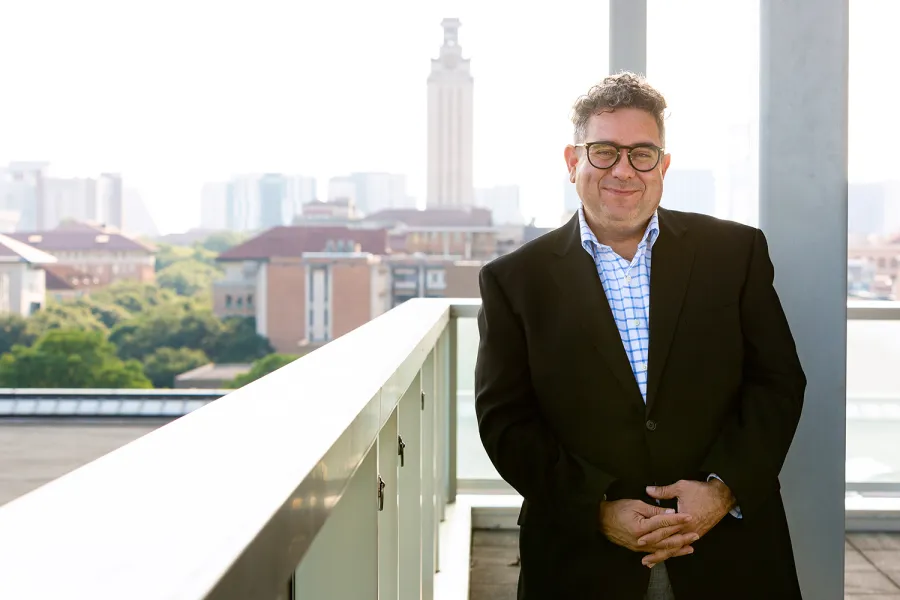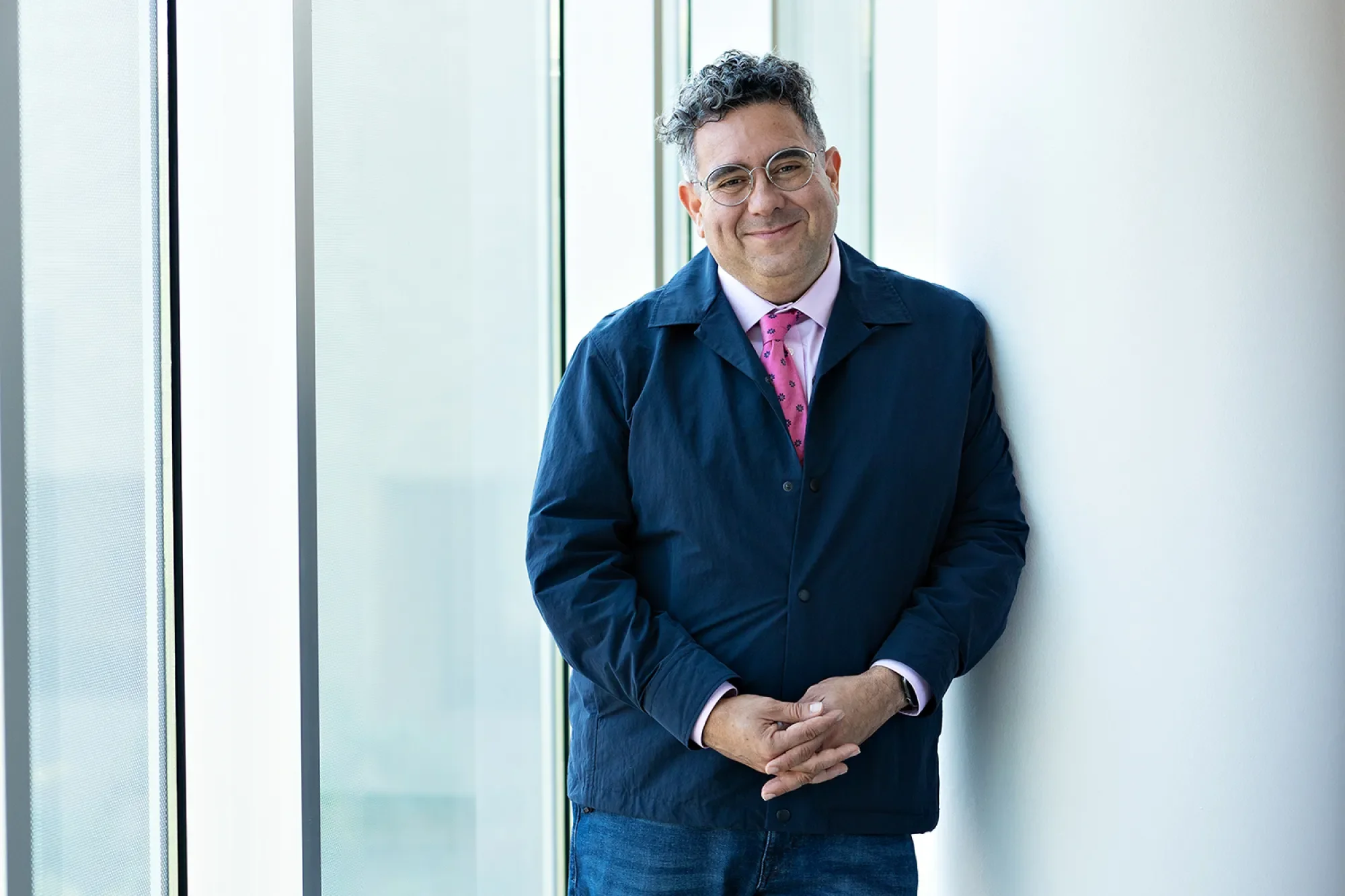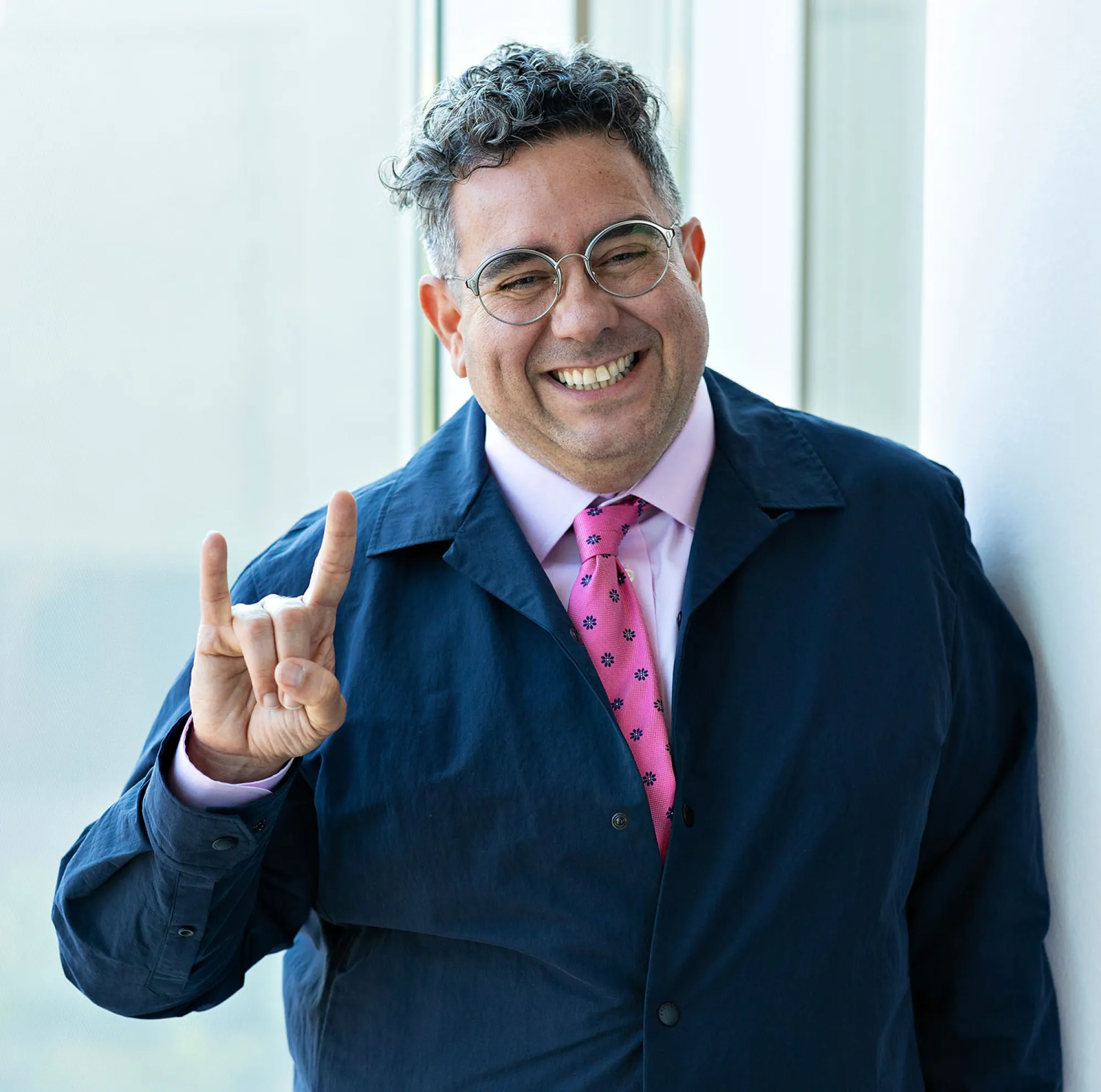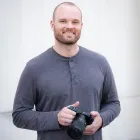January 11, 2022

The Butler School Welcomes the New Dean of the College of Fine Arts
This year the College of Fine Arts at The University of Texas at Austin welcomes a new Dean, Dr. Ramón Rivera-Servera, an alumnus who was the first graduate of the Performance as Public Practice Ph.D. program in UT Austin’s Department of Theatre and Dance in 2003, and is now the school’s first Latino dean. Rivera-Servera succeeds Doug Dempster, who served as dean since 2007.
Rivera-Servera enters the college at a pivotal moment for the Butler School of Music. One of his first priorities is to initiate a search for the school’s next director following the departure of Mary Ellen Poole last spring.
Rivera-Servera comes to UT Austin from Northwestern University, where he chaired the Department of Performance Studies and the Department of Theatre in the School of Communication. We sat down with him recently to discuss his professional journey that brought him back to UT Austin leading the school he graduated from, his upbringing in Puerto Rico, and his thoughts on the future of fine arts in higher education.

You earned your Ph.D. from UT Austin in 2003. Did you ever imagine you’d be back leading the college you graduated from?
In my mind coming to UT Austin has always been serendipitous in the sense that I came here after having completed my first round of doctoral exams at the City University of New York, where I was a student. When Professor Jill Dolan, who was my academic advisor in New York, was offered the Z.T. Scott Family Chair in Drama in the Department of Theatre and Dance, she invited me to come along to continue studying under her tutelage.
It was such a big discovery to get here to study theatre, performance art, dance and popular music practices at an institution that had a long trajectory of tending to Mexican American musical and performance practices and creativity. Those were histories and practices that were never presented to me as an undergraduate or graduate student in New York.
And it was fortuitous that I arrived at UT Austin at a time when graduate education in the Ph.D. program was turning towards applied knowledge, the imperative that we don’t just produce groundbreaking scholarship about the arts, but we engage in animating the actions of the arts through practice. It completely transformed how I did scholarship.
And after 20 years of launching and advancing my career and engaging in the arts across the country, this job came up, and while I was comfortable at my previous job and I loved my community there, I felt like I had a real connection and sense of legacy about this place and that I owed back to the institution.
The Butler School said goodbye this summer to Director Mary Ellen Poole. What are some of the top priorities you’ll be considering as you initiate the search for new leadership this year?
Mary Ellen has been a joy to work with in in the middle of this transition, and it’s been so affirming to see the loving regard she has for the Butler School and the pride she has in the excellence it contains. I just want to find somebody who is just as enthusiastic about the gem that is our School of Music and who is committed to seeing it continue on its path of excellence.
The Butler School deserves a new director with a career of national and international acclaim and a desire to continue innovating the field of music along with the incredibly talented group of faculty, staff, and students that comprise its community. Someone with proficiency and respect for the traditions that have shaped our disciplines, but also the ambition to see music’s growing relevance at the university and across society.
We need someone committed to expanding the threshold for participation in music, understanding that music is everywhere, whether we’re educated to engage it in traditional ways or not. For example, I grew up with the good fortune of being able to experience the symphony and jazz ensembles in Puerto Rico, and at the same time marvel at the improvisatory intelligence of drummers and dancers in both ritual and social forms of musicking. As a scholar, I have tended to both experimental composition for the concert hall and popular music at nightclubs with the same level of reverence and rigor. I think articulating that broader range of practices not only challenges public perceptions of exclusivity and demonstrates the far-reaching role of music in our daily lives, but also advances music as an active verb, a doing we want to behold and advance in our community.
We are an institution ideally poised for this. Already a significant number of our arriving talent comes from the incredibly rich culture of marching bands across the state of Texas and its relationship to sports. We are already merging our investments in musical expertise with our broader cultural rituals to great success.
What do you think are some of the biggest challenges facing a music school like ours over the next decade?
We are at a moment when we are trying to be more intentional about expanding the kinds of practices and practitioners we welcome under our tent. When I talk about this, I’m not talking just about future musicians we so skillfully train. One of the main functions that music schools perform is educating audiences about how to enjoy, value, engage and support music into the future.
We are one of the largest presenters of music in the city and in the state. We have to take that role seriously. We have thousands of students and community members come through our halls to experience music. And that means that we are, by the sheer practice of our curation and presentation of work, shaping the ability of audiences to understand the goals and the pleasures of music. We have a responsibility of ensuring our community feels invited and that our programming reflects the immense diversity of the world.
If we care for the future of music, we have to really think about how people access it. How do people gain the necessary skills to transition into an educated practice in music? We must be accessible, inclusive, and committed to a generously democratic view of this art form we love so much.
Another interesting challenge is the dramatic changes in music production and distribution of our contemporary moment. I am not just talking about simple digitalization. I mean the advent of interactive media platforms like gaming and immersive architectural design. Also the nature of business economics. The number of licensing contracts that have been advanced to young composers working on music attached to film or televisual entertainment, as well as the new media environments I just mentioned, have grown rapidly and significantly over the years. I think we need to figure out how are we teaching our students to make a life in music, understanding that this may not always direct them into the concert hall as the only destination. Understanding how to make a life in music invites us to value our excellent curriculum in music education, our offerings in creative entrepreneurship, and our investments in expanding and strengthening our career services unit. If music is everywhere, the music student ought to have a vast map of possibilities to traverse at the College and the University to advance their practice and their livelihood.
You’re very open about your queer identity. Were you always that way? What was it like growing up LGBTQ+ in Puerto Rico? When did you feel comfortable sharing your identity with those close to you?
I’m very lucky because my family was embracing of the great diversity in our clan across many categories including race, sexuality, national origin, and class. I’m not the first and I’m not the last in my family to claim a queer identity, and I fortunately lived in a sheltered and supportive environment. And it’s funny because as a result, I never had a traditional coming out story. I have beautiful recollections from my youth of my grandmother indulging my choices of toys and games beyond the traditional gender binary. I wanted a little kitchen, I had a little kitchen; I wanted to play with dolls, I was allowed to play with dolls. My family was generally very supportive of the kinds of explorations and creative choices that I pursued.
How does your own experience shape the way you view diversity in the arts?
I came to the United States to go to school in the early 1990s, in the midst of the AIDS pandemic. I think that was the single most influential factor impacting my own work in the arts. It all came together for me during my first year as an undergraduate student in art and art history at the University of Rochester. I had the great fortune of enrolling in Professor Douglas Crimp’s “Representing AIDS” class. It was an incredible engagement with the art archive––musical, performative, visual––that was produced in response to the AIDS pandemic, and it really shaped the course of my career. It helped me see the ways art convenes, intervenes, mobilizes and even heals communities in times of distress.
How do we ensure a fair and inclusive environment for everyone who wants to pursue a music degree, regardless of race, socioeconomic status, gender identity, etc.?
It’s been quite inspiring to see how far the College has come since my time here in the late 1990s and early 2000s. The Butler School and the College of Fine Arts have been so beautifully intentional in advancing a culture of inclusivity. I want to support the continued success of that approach to open our doors and be responsive to the communities we serve.
As a working-class Puerto Rican student, making my way into the U.S. arts landscape would have been impossible without the generous support of donors who endowed fellowships and teachers and mentors who validated my experiences in artmaking and arts research as valuable, even world-changing. We are a community of outstanding faculty and staff, and committed supporters dedicated to those eager students who have come to get their start here in Texas and who, I am certain, will go on to change the world.



